An Overview Of The Futures Market And Why You Should Choose Digitex Futures Exchange Over Others Part 1
Digitex futures exchange is the only futures exchange that cares about your growth and profit by offering you a complete zero trading fee.

I made some posts earlier about Digitex Futures Exchange, But I found it necessary to give an overview of the futures market and also mention some already existing exchanges. So today I'm starting a series to talk about the futures market and the terms involved in it. I intend to show you reasons why Digitex Futures Exchange will dominate the rest of the Exchange in the course of this series. Grab some popcorn, fasten your seatbelt and get ready for this smooth ride.
This series hopes to cover topics which includes: derivatives, derivatives markets, characteristics of derivatives, derivatives instruments (forwards, futures, options and swaps), how the futures contract works, how the price of an asset is calculated in futures and, players involved in futures, Comparison between Digitex and BitMex, I also hope to show you reasons why the future belongs to Digitex.
It might take 2-4 post to fully exhaust these topics but I really hope and wish you'll follow me till the end.
Without talking much again, Let's get started.
What Is Derivative
According to Wikipedia, " a derivative is a contract that derives its value from the performance of an underlying entity. This underlying entity can be an asset, index, or interest rate, and is often simply called the "underlying".
They are currently one of the used financial assets. It can simply be defined as a product whose value depends on another asset.
It has the main function of allowing investors and companies to cover themselves while anticipating changes that might occur in the future market.
What Is A Derivative Market
This may be defined as a market where contracts derived from assets and underlying securities can be traded.
These contracts can be bonds, currencies, shares, stock index etc.
Characteristics of derivatives
Below are some major characteristics of Derivatives.
- Financial derivatives are always settled at a future date.
- The investment that must be made to acquire a derivative instrument is always much lower than the actual value of the underlying stock.
- The price of the derivative always varies with respect to the value of the underlying asset linked to the said derivative.
- They can be referred to as financial products or to non-financial products.
Derivative Instruments
There are four major derivatives instruments. These instruments are :
- Forwards.
- Futures.
- Options.
- Swaps.
We will be looking at these four major derivative instruments one by one, although we will focus more on futures.
Forwards
This is a type of derivative contract in which the parties involved agree to trade (i.e buy and sell) a certain amount of assets at a future date established at a certain agreed price.
It is a contract that is made to measure between both parties even though it is not traded in the organized market but over the counter (OTC). The modification of such contracts conditions requires the total agreement of both parties involved in the transaction.
In forwards, one of the parties undertakes to deliver an asset at a future date while the counterpart also agrees to deliver the equivalent amount of that asset in another asset.
The exchange at the time of signing the contract is what will be used when the contract is finally executed.
Options
This is a derivative instrument in which rights and not obligations of purchase or sale are traded on others.
Options are traded in regulated markets such as the stock market.
Option is actually similar to futures but with the disparity which is that at the time of the issuance of the right to collection and future payment, An economic exchange called the issue premium is generated. This is what the seller receives from the buyer in advance of the future deal.
Swap
This may be defined as an exchange contract in which two companies agree to exchange their future cash flows according to a pre-established formula.
These contracts are made in other to meet the specific needs of those who sign the contract. This is the reason it is been regulated in Over the counter (OTC) markets.
The contract contains certain specifications on the currencies in which the exchange of flow will be made, the date in which each exchange will be made, the formula that will be used for that purpose and off-course the applicable interest rates.
Futures
This may be defined as a standard contract whereby the parties agree to buy or sell a certain amount of asset at a future date set at a certain price.
Unlike forwards, Futures are standardized in terms of the quantity and quality of the underlying asset and are traded on organised markets. Futures are also subject to guarantees.
In futures, a party agrees to buy a certain number of units of a previously characterized asset, while the other party agrees to sell or buy it under the stated conditions.
I will talk more about how the futures contract works, how the price of an asset is calculated in futures and the people involved in futures. However, if the content can carry, then we might add the comparison between BitMex and Digitex, then round up.
Also, note that over 100 thousand people have already joined the Digitex waiting list and it will be nice to have you onboard.
Click Here to get early access and don't forget to sign up so that you can stand a chance to win some DGTX tokens which will be the utility token of Digitex.
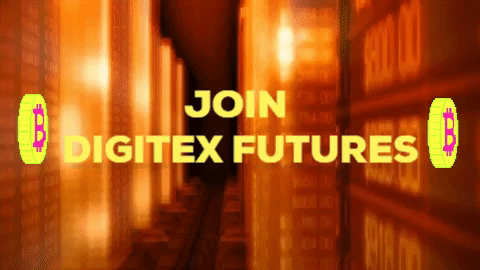
Visit the following links below to learn more about Digitex Futures Exchange
Twitter: @digitexfutures
Facebook: @digitexfutures
Telegram https://t.me/digitexfutureschat
REFERENCE:
Shares
Reddit
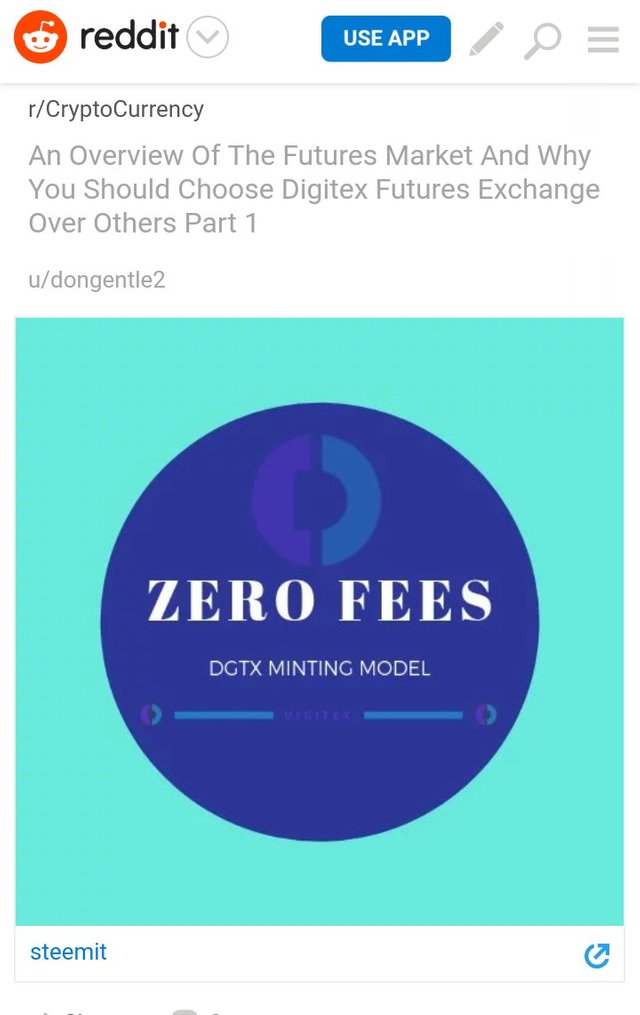
Facebook
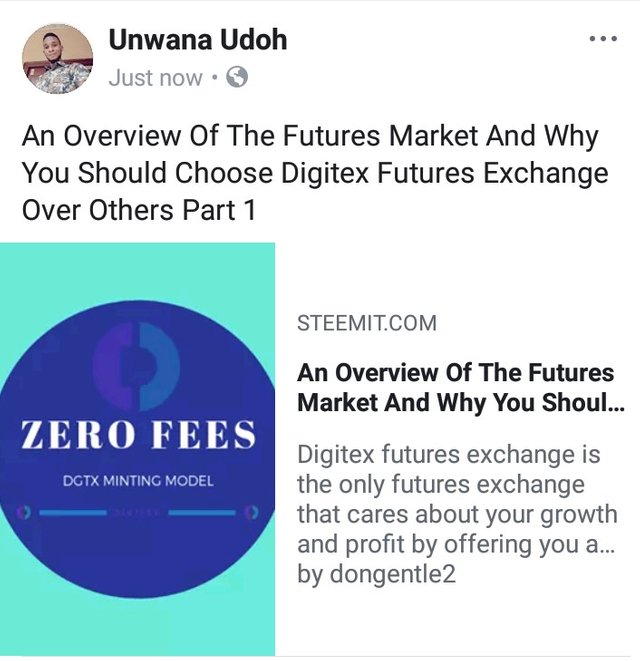
Twitter
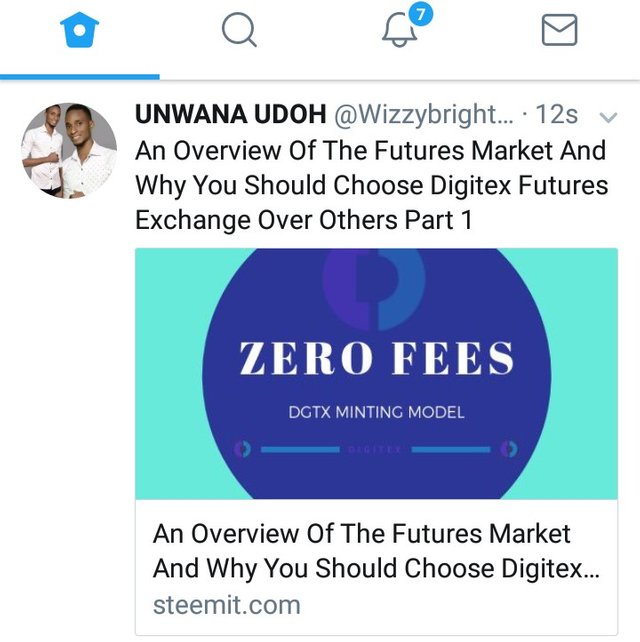
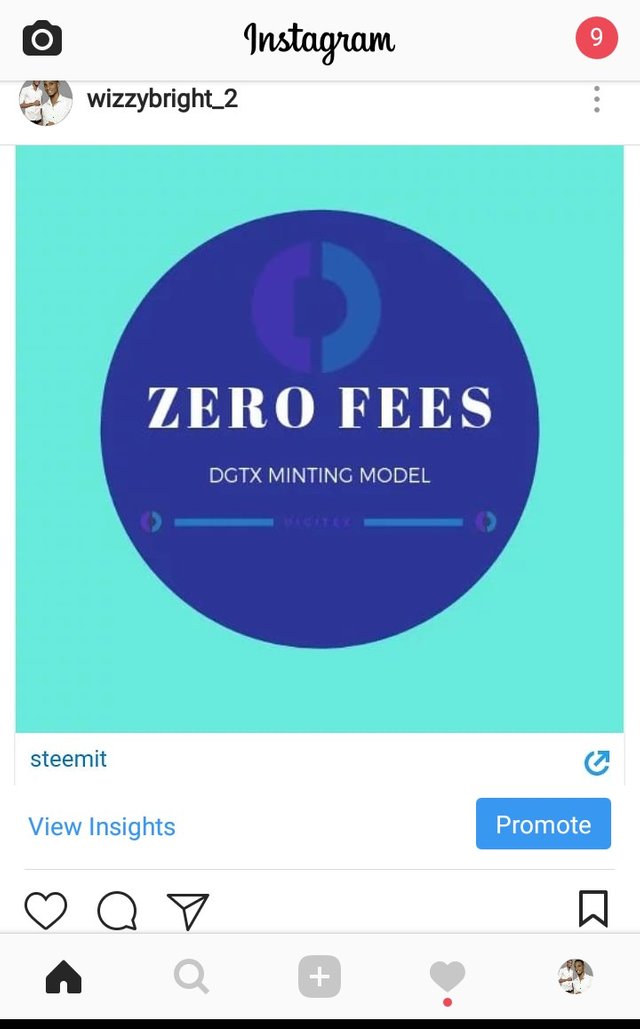
Instagram
Google Plus